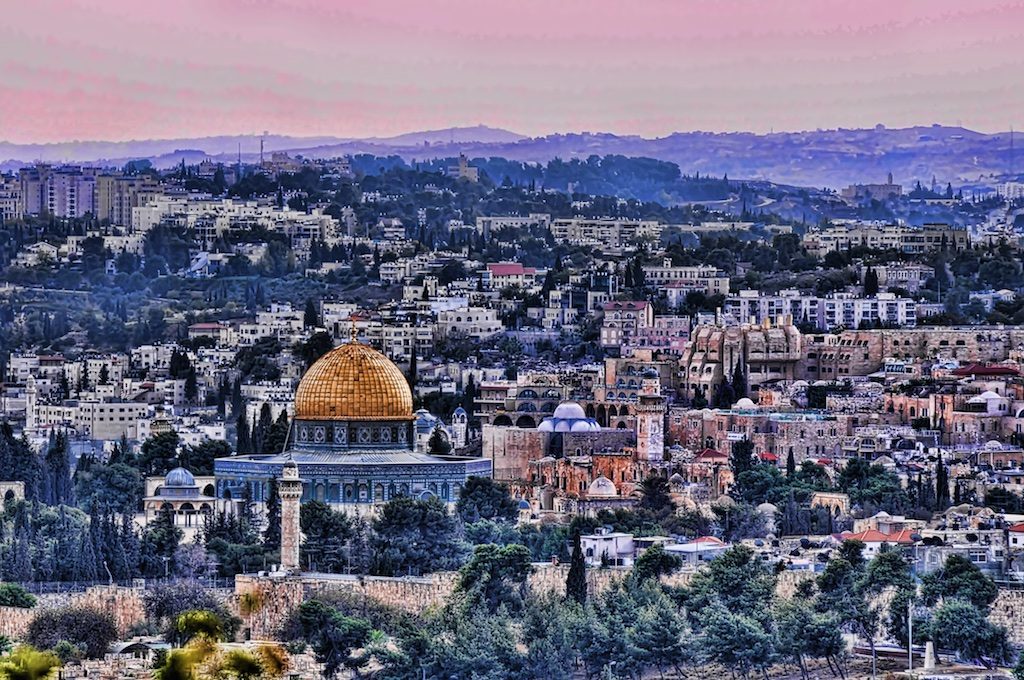Doubled Duty
Bless the Lord, O my soul! O Lord my God, You are very great; You are clothed with splendor and majesty, Psalm 104:1 NASB
Majesty – Get dressed! Ah, but remember that in ancient cultures what you wore was often a sign of your status in life. Today we have an array of choices that would make an ancient king envious. And we don’t even think about it. Not so when David penned these words. Most people had one or two garments to choose from. Only those with wealth or rank had wardrobes. So when David uses the word hadar he is actually reiterating what the verb already says. Hadar is about splendor, honor and majesty often represented in clothing. But there are some interesting nuances. First, hadar expresses “the glory of nature as it reflects the goodness of God.” Like this:

Second, hadar describes “man as he is created by God.” Notice what comes first in the Hebrew text—the prepositional phrase “in splendor and majesty.” The literal text reads, “in splendor and majesty you are clothed.” The thought is about how the garment appears, not simply about putting it on. God created man in His image. He “clothed” man with His own appearance. What does this mean? What “clothing” does the created man have? Since Hebrew is verbal, the clothing is action.
Hadar is often found with hôd, always in the order hôd ve-hadar. So far no related root in other Semitic languages has been found for hôd. It is uniquely a Hebrew word.[1]
Third, hadar is used to describe cities like Jerusalem. Clothing in stone.

Let’s think about the idea of clothing something. Covering up is also a way to hide! If God is clothed in light, is He visible? Can you actually see light? You see what the light reveals. You see it reflected, refracted or illuminating something else, but do you actually see light? If God is clothed in light, doesn’t that mean that He is visible only in reflection. We see Him as His light reflects something else, like nature or man or Jerusalem. We see what God illumines. We do not see Him directly.
And this gives us pause. Luzzatto is one who notices that if we wish to show our love for God we must do so in the way we treat others. We must love others in order to love God. Our love for the Father is reflected in the love of others. Perhaps this is the way all of our desires for holiness and godliness work. We don’t achieve them directly. We reach them through reflection. We put on the “clothing” of deeds, thoughts, words and attitudes in order that what was hidden can be seen.
Today you can be clothed in God’s image. Just do what He does and be radiant!
Topical Index: clothed, majesty, hadar, Psalm 104:1
[1] Hamilton, V. P. (1999). 482. In R. L. Harris, G. L. Archer, Jr. & B. K. Waltke (Eds.), Theological Wordbook of the Old Testament (R. L. Harris, G. L. Archer, Jr. & B. K. Waltke, Ed.) (electronic ed.) (209). Chicago: Moody Press.
WEB SITE NEWS: We are moving to the new web site. If you get a message to that effect in the next day or two, don’t worry. Things will be fine.




Hi Skip, love the photos. With regard to “loving others,” can you define that more from a Hebraic perspective. I think many think its just the affectionate kind of love, the kindness kind of love, but what about when love is shown through boundaries and tough love?
Hi Dana,
That would be love as defined by ‘whom He loves, HE chastens, and disciplines’, being commanded to go make disciples teaching and guiding them, not just to love them, extending grace and mercies, hoping and praying for them, that, will not direct their paths back to YHWH’s. Shalom!
it is similar to how we in turn want to be treated, do we want to be shown tough love and upbraided as it were, when gentleness and understanding would be as sufficient to help us learn. Even perhaps if it takes longer. We ask do we want to be thoroughly threshed in all ways and at all times because of our limitations and flaws, or can we appreciate the kindness extended to us and learn from the same in regard to others. We can ask ourselves what we want love to mean. The Hebraic concept of love is the same meaning as to understand the law, how do we hope to be treated, and in turn let us try (because it is not always going to be easy) to learn the same for the sake of all others
Thanks Skip
Just returned from a trip to the Bavarian Alps in Germany. Majestic and radiant indeed!
We experienced something else that was radiant: the man who rented us his apartment.
Upon hearing that I was having some visual problems in my right eye, he took it upon
himself to intervene. He contacted his doctor who in turn happened to know one of the
country’s top retina specialists with a 6 month appointment time line. He arranged an
appointment within 12 hours, then personally drove me to and from the doctor’s office.
I was taken by this man’s heart. He knew many important people, but before we left
to return to the States I asked him if he knew THE most important person. His eyes
brightened considerably when I mentioned the name Jesus. “Do you know Him?” he
asked me. I nodded in the affirmative and he found himself in a new realm of excitement
to think he might get to know the Messiah himself. I shared the gospel with him and he
was like a thirsty deer at the brook.
We left to drive to the airport, and he went out seeking to buy his first Bible. I imagine by now
he’s home reading the Word and discovering Who it is that has made him so radiant in
the first place!
Rich. Isn’t YHWY amazing bringing the two of you together, and to be able to even encourage us with your testimony.
Thanks
Rich, thanks for sharing, the father says, I WILL DRAW ALL MEN UNTO ME, we dont know when, where,or how that is why we have to be always in a state of readiness.
Love, Love the pictures Skip please keep posting them, beautiful!
Love the TW and the pictures. Thank you.
Dana, good questions.
Thank you, YHVH!
Hi Skip and others,
I enjoyed reading Dana’s question, Ester’s comment to it, Rich’s encounter with the man and how you both ministered to each other, and the final sentences in this reflection. It sounds so simple, but for those of us who need to tangibly hold a moral compass, quite doable praise YHVH!
We put on the “clothing” of deeds, thoughts, words and attitudes in order that what was hidden can be seen.
Today you can be clothed in God’s image. Just do what He does and be radiant!
David R